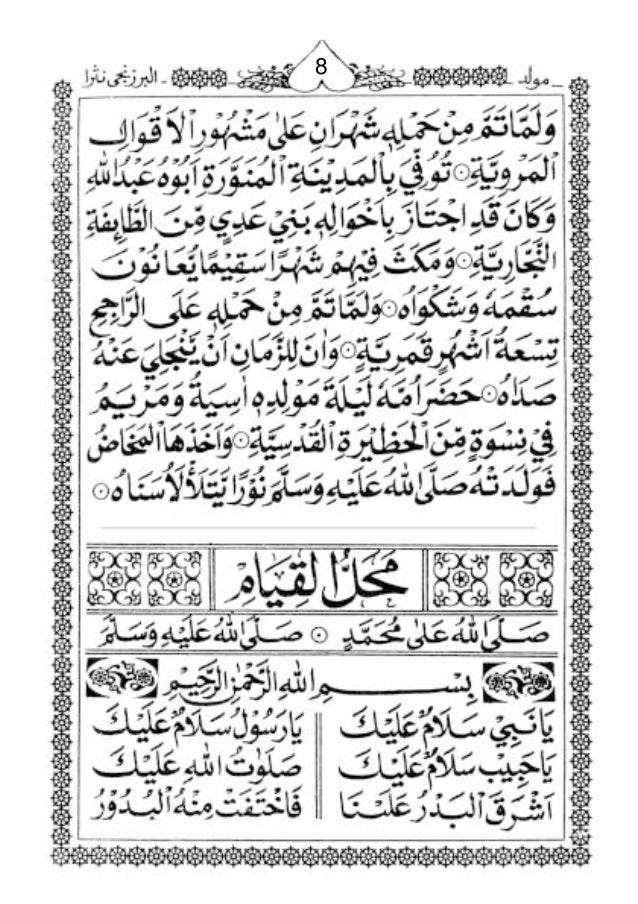
Pdf Bacaan Kitab Al Barzanji
Tags: Nadodi pattukaran songs Video Songs, Nadodi pattukaran songs bollywood movie video, Nadodi pattukaran songs video Download, mp4 இளையராஜா இசையில் நவரச நாயகன் கார்த்திக்கின் காதல் பாடல்கள்| Karthik Love Songs| Hornpipe Songs hindi movie songs download, Nadodi pattukaran songs all video download, Nadodi pattukaran songs Hd Video Songs, Nadodi pattukaran songs full song download, Nadodi pattukaran songs Movie Download, Nadodi pattukaran songs HD video Download, Mp4 Songs Download, Nadodi pattukaran songs video, 3gp, mp4 download, Nadodi pattukaran songs Songs. Vanamellam senbagapoo nadodi pattukaran ilayaraja song download full.

Calligraphy of the title adorning the cover of a recently released Arabic-English edition of Mawlid al-Barzanji in the UK. Mawlid al-Barzanjī (مولد البرزنجي) is the popular name of one of the most important and universally accepted of the Islamic prophet in the vernacular. The complete title of the work is, “ ‘Iqd al-Jawhar fī Mawlid al-Nabiy al-Azhar (عقد الجوهر فى مولد النبي الأزهر) – The Jewelled Necklace of the Resplendent Prophet’s Birth”.
There are many variations of passages of Lorem Ipsum available, but the majority have suffered alteration in some form, by injected humour, or randomised words which don't look even slightly believable. Manual practico para la construccion jaime nisnovich pdf to excel.
Download terjemah kitab barzanjisecara gratis disini, kitab barzanji adalah kitab yang berisi tentang bacaan sholawat-sholawat terhadap nabi besar kita Muhammad Saw, yang intinya adalah memuji kemulyaan nabi muhammad dan berharap untuk mendapat berkah dari beliau rosululloh Saw. Berikut ini adalah bacaan marhaban al-barzanji maulid nabi dan ketika mencukur rambut bayi, Bacaan ini saya susun dari kitab al-barzanji supaya sahabat mudah membacanya, tidak perlu bolak balik membuka halaman kitab, Mahalul Qiyam, Bacaan maulid ini sudah tidak asing lagi di kalangan masyarakat, mereka suka mengadakan acara membaca al-barzanji.
It is work of the poet and Islamic jurist of the city of. Contents • • • • • • The Mawlid genre [ ] The work is highly revered and widely recited by around the world. In and, the term “ Barzanji” is synonymous [ ] with the word “ ”, which is essentially a colourful celebration and spiritual display of deep love of the Prophet Muḥammad. This is done through poetic description of his blessed and, the miraculous exploits and significant events in his life, and description of his internal and external disposition. It is closed with a sublime supplication seeking the fulfilment of needs of the ephemeral world here and the pleasures of the everlasting abode in the Hereafter.
Public approval [ ] The work has a central place during the annual commemoration of the advent of Muḥammad which, according to majority consensus, was on the 12th day of the of. In the Muslim households of Asia and Africa, it is also recited to solicit Divine blessings on special occasions such us the birth of a child, moving into a new house, opening of a new business, and even at the time of death - for the hallmark of a believer is to rejoice in God’s blessing (i.e.
The birth of Muḥammad) than to lament a loss (of a loved one). It also serves to remind the believer that no loss is greater than the loss of Muḥammad. Yet, he continues to live in the hearts and minds of the faithful.
Scholarly acceptance [ ] The acceptance of the work amongst the elite is demonstrated by the numerous commentaries upon it composed by accomplished scholars including the author’s descendant, Ja’far ibn Ismā’īl al-Barzanjī (d. 1317 AH / 1899 CE), the Highest Juridical Authority () of the in Medina. Another prominent commentator was Muhammad ‘Ulaysh (d. 1299 AH/1881 CE), the Highest Juridical Authority (Muftī) of the in. A further popular commentary was by the scholar, Muḥammad Nawawī al-Bantānī (d. 1316 AH/1898 CE), a Shāfi’ī and who settled in.
The titles of some of the commentaries are as follows: • al-Barzanji, al-Kawkab al-anwār ‘alā ‘iqd al-jawhar fī mawlid al-nabī al-azhar.